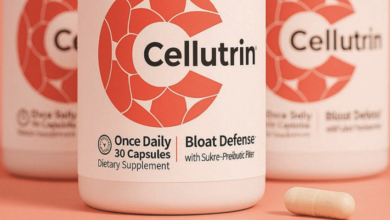Are You Choosing the Best Nutritional Supplements in India? Here’s What Experts Say

Walk into a pharmacy or browse online for five minutes—you’ll see how crowded the supplement space has become. Bottles stacked high, labels screaming benefits, and buzzwords printed in bold. It’s hard to tell what’s genuinely helpful and what’s just clever packaging.
That’s where it gets tricky. When you’re trying to choose from the best nutritional supplements in India, it’s not always about what looks good. It’s about what actually works for your body, your diet, your goals.
And getting it wrong? That’s more common than you’d think.
Some supplements don’t even contain what they claim.
There have been enough tests now to show this isn’t just a rare issue. Dosages can be off. Labels may skip over certain additives. And you wouldn’t always know unless you’re reading ingredient lists the way a pharmacist would.
Even something as simple as a multivitamin can be misleading. You think you’re getting all the daily essentials. But check again, and you’ll see some nutrients barely reach 20% of what you need in a day. Others are missing entirely.
So, why are people still buying them?
Because a lot of the time, decisions are based on what’s trending—not what’s needed.
Ashwagandha. Omega-3. Green tea extract. They’re popular for a reason, but that doesn’t mean they’re right for everyone. Someone trying to manage stress may need something entirely different from someone with joint stiffness or digestive issues.
It really depends.
Lifestyle, diet, and even sleep patterns can affect what your body’s lacking. But those details rarely show up on supplement ads. You have to go digging. And most people don’t have the time for that.
What the experts look for isn’t always what you see in marketing.
They’re not just checking for the right ingredients—they’re looking at how they’re delivered. For example, certain forms of magnesium are absorbed better than others. And some plant extracts only work if they’ve been standardised for specific compounds.
Even the packaging can matter. If it doesn’t protect sensitive ingredients from light or moisture, you’re probably not getting what you paid for.
It’s like this: Two supplements might list the same thing on the front. But one uses better sourcing, higher purity, and actually tests for contaminants. The other… just doesn’t.
So how can you tell which is which?
It’s not always obvious. But a few habits can help you filter out the fluff.
- Check if they mention how much of each active ingredient is in each serving. Not just the name—look for actual numbers.
- Avoid products that rely only on buzzwords like “natural” or “herbal” without any supporting detail.
- Search for brands that use liposomal delivery for vitamins that are hard to absorb, like C or B12.
- Read past the marketing claims and focus on whether they link to any real research.
If a supplement doesn’t tell you how it works, or how it was tested, that’s a red flag.
People often think a higher price means higher quality. That’s not always true.
Some genuinely good supplements do cost more because of better sourcing or cleaner manufacturing. But others mark up the price just because they can. Flip the bottle and check. If it promises ten powerful ingredients in one capsule, but doesn’t show how much of each, it’s probably not doing much.
The opposite is also risky. A supplement that seems too cheap for what it claims might be cutting corners. It’s not paranoid to be cautious—it’s just smart.
There’s also the question of where it was made.
Most well-made supplements in India will mention that their facilities follow GMP (Good Manufacturing Practices). That’s a good start. But better brands go a step further. They test for heavy metals. They list batch numbers. They’re willing to share reports if you ask.
Some also use hydrolysed collagen, which is processed in a way that makes it easier for the body to absorb. Not every product includes this, but those that do usually say so clearly.
It’s not about trusting blindly—it’s about knowing what questions to ask.
Combination supplements can feel convenient. But that’s not always better.
You’ve probably seen products that claim to support immunity, digestion, energy, and skin health—all at once. While that sounds great, there’s usually a trade-off. Either the ingredients are underdosed, or they interact in ways that reduce their overall effect.
Sometimes, it’s better to focus on a single compound that does its job well. Simpler can mean smarter.
Here’s what a lot of nutritionists agree on:
- Most urban Indian diets lack Vitamin D, B12, and iron.
- People who work indoors, skip breakfast, or follow restrictive diets often need supplementation.
- Supplements help—but they’re not a replacement for whole food. They support, not substitute.
The goal isn’t to take more. It’s to take what actually matters. With the correct information, you can make more intelligent choices without falling for every new trend.
Truth is, you don’t need to be an expert to choose better.
But you do need to be a little more curious. A little more sceptical. Ask where the ingredients come from. See if the brand discloses how they process or test their products. And never rely on influencer reviews alone—those can be paid, and often are.
If something sounds too good to be true, it usually is.
Supplements aren’t magic pills. They’re just one piece of the puzzle.
See Also: On the Road Again: Comprehensive Automotive Lock and Key Expertise
Final thought
What works for someone else might not work for you. That’s okay.
You’re not looking for a miracle—you’re looking for something real. The kind of supplement that does what it says and says what it does. It’s not about jumping on the next hype. It’s about keeping your health choices grounded.
If you’re asking the right questions, you’re already on the right path.







